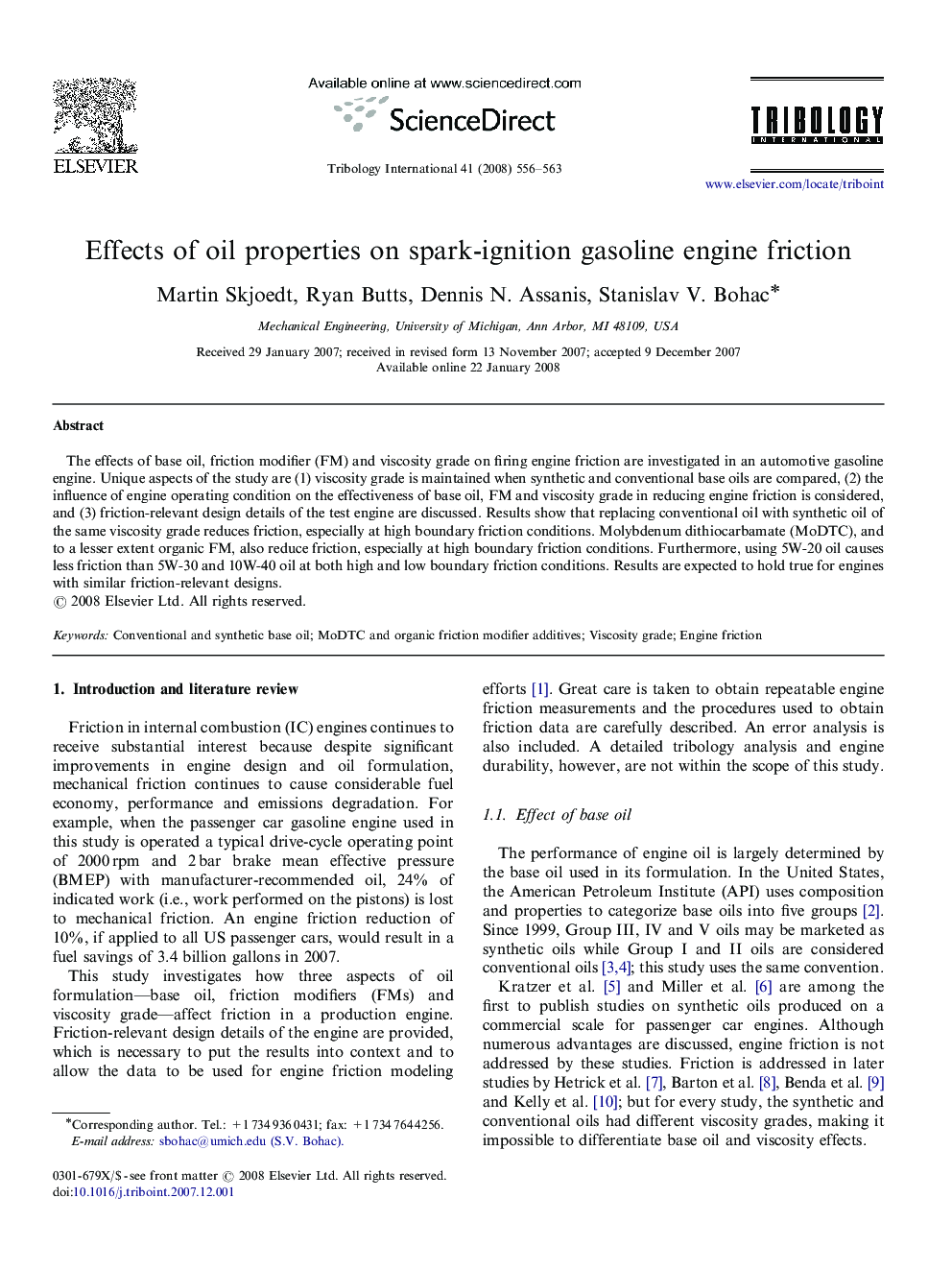| کد مقاله | کد نشریه | سال انتشار | مقاله انگلیسی | نسخه تمام متن |
|---|---|---|---|---|
| 616117 | 881473 | 2008 | 8 صفحه PDF | دانلود رایگان |

The effects of base oil, friction modifier (FM) and viscosity grade on firing engine friction are investigated in an automotive gasoline engine. Unique aspects of the study are (1) viscosity grade is maintained when synthetic and conventional base oils are compared, (2) the influence of engine operating condition on the effectiveness of base oil, FM and viscosity grade in reducing engine friction is considered, and (3) friction-relevant design details of the test engine are discussed. Results show that replacing conventional oil with synthetic oil of the same viscosity grade reduces friction, especially at high boundary friction conditions. Molybdenum dithiocarbamate (MoDTC), and to a lesser extent organic FM, also reduce friction, especially at high boundary friction conditions. Furthermore, using 5W-20 oil causes less friction than 5W-30 and 10W-40 oil at both high and low boundary friction conditions. Results are expected to hold true for engines with similar friction-relevant designs.
Journal: Tribology International - Volume 41, Issue 6, June 2008, Pages 556–563